It may come as a surprise, but knitting and war have a lot more in common than one may think. In many countries including the United States, wartime has almost always involved knitters. Back in the day, women were encouraged to support troops from home by knitting socks and hats for them. However, even though knitting has been always associated with a favorite pastime of older ladies, during conflicts, it became much more than that.
“During wartime, knitting would often become a form of resistance”
There exists quite a long history between knitting patterns and espionage. Some would knit codes into the fabric, while others used knitting as a cover. Spies have been known to incorporate secret messages into knitting, embroidery, rugs. When war would loom dangerously overhead, there were knitters, sitting patiently, fighting their own fight, putting up their own way of resistance. It wasn’t just women who knitted – prisoners, hospital patients, children also contributed to the knitting craze. Soldiers who were wounded in the field would also be taught how to knit while at the hospital, which also had a therapeutic effect.
“Sometimes, people would hide codes in their knitting”
“Knitting would also be used as a cover for spies”
When knitters wanted to convey a secret code via their knitting, they used a form of steganography. That means that they would incorporate morse code in the fabric. Knitted garments are basically made of combinations of two stitches – a knit stitch (resembles a “v”) and a purl stitch (looks like a horizontal line or a small bump). Thus, by using these two types of stitches, knitters would work on a pattern that would convey an encrypted code, which then would be hidden in plain sight of an innocent-looking garment.
“Through the use of steganography, people would encrypt messages into garments they made”
“With the help of morse code, it was relatively easy to encipher information into a fabric”
“During wartime, those who stayed at home were always encouraged to knit for the troops”
Knitting women were always a common sight, as they were encouraged to knit necessary items for soldiers during conflicts – meaning that it could be easily used to the spy’s advantage during wartime. People who didn’t want to risk putting in coded messages in their knittings used knitting as a cover. One of the most famous examples was Molly “Mom” Rinker of Philadelphia. During the Revolutionary War in the United States, British troops would take over the homes of colonials and naturally, people were not pleased. When the Brits came to Molly’s house, they would not allow the men of the household into the dining area – only Molly was allowed to serve the soldiers, and she would then listen closely to their conversations. After that, she would write the information down on a small piece of paper, wrap it around the stone which would then get wrapped into yarn, making a seemingly plain-looking ball of yarn. Then, Molly would take it to a rock where she would sit and knit, dropping the yarn ball inconspicuously off the rock. When one of the men of George Washington would ride by, they’d pick up the yarn ball and thus, learn the secrets of the British military.
“Not only women would take up the hobby”
“Children were also taught how to knit”
“Every stitch meant you were working for a soldier”
One blogger shared an intriguing story in which she remembers wartime and her family knitting for soldiers: “My mother, Shirley, knit during the war while delivering mail in a horse-drawn buggy. She told me that she would deliver the rural mail with her best friend Wanda, so they could enjoy private conversations away from the prying ears of her three brothers! One would have the reins while the other knit away at lightning speed. One of the misconceptions of knitting is that it’s a quiet, relaxing pastime. It is now but during the war, it was so important that a person ALWAYS carried a project and they worked until their fingers were exhausted. The soldiers NEEDED what was being made, so every stitch meant you were working for a soldier – showing him he was a part of the family. [My mother] told me that even the youngest children in the one-room schoolhouse were given needles and started out by making garter stitch blocks that would be sewn together into lap blankets. Knitted scarves were VERY important and the need for them during the damp winters in Europe was incredible.”
28Kviews
Share on FacebookMy Dad and Uncle grew up as kids during WW2 in Holland. The resistance used the kids school homework books to send messages. The kids would carry the books with messages around, to the different houses and people. They "the kids" said that it was "exciting" to be part of the war effort. It would be a near impossible task for the Nazis to inspect every schoolbook, every writing etc and not even understanding the language. BRILLIANT.
Reminds me of a true story: A British POW in World War II hid a message in his needlework. You can read more here: https://www.telegraph.co.uk/news/9009004/British-prisoner-of-War-stitched-hidden-anti-Hitler-message-into-Nazi-quilt.html
My grandfather was soldier in 1st. World War. Had always cold feet, and insisted that all his boys and grandchildren in the family knew how to knit their own socks.
Now there's a history of my craft didn't know about that was incredibly interesting
This is driving me crazy. The war images are mixing the two world wars together. During the early part of the 20th century knitting was experience a huge popularity.
This is not a revelation. During both World Wars knitting codes were common and women frequently acted as spies. Two women sitting and knitting together would be sending code and copying codes, and both pieces would be unravelled so that the wool could be used again for more messages.
My Dad and Uncle grew up as kids during WW2 in Holland. The resistance used the kids school homework books to send messages. The kids would carry the books with messages around, to the different houses and people. They "the kids" said that it was "exciting" to be part of the war effort. It would be a near impossible task for the Nazis to inspect every schoolbook, every writing etc and not even understanding the language. BRILLIANT.
Reminds me of a true story: A British POW in World War II hid a message in his needlework. You can read more here: https://www.telegraph.co.uk/news/9009004/British-prisoner-of-War-stitched-hidden-anti-Hitler-message-into-Nazi-quilt.html
My grandfather was soldier in 1st. World War. Had always cold feet, and insisted that all his boys and grandchildren in the family knew how to knit their own socks.
Now there's a history of my craft didn't know about that was incredibly interesting
This is driving me crazy. The war images are mixing the two world wars together. During the early part of the 20th century knitting was experience a huge popularity.
This is not a revelation. During both World Wars knitting codes were common and women frequently acted as spies. Two women sitting and knitting together would be sending code and copying codes, and both pieces would be unravelled so that the wool could be used again for more messages.

 Dark Mode
Dark Mode 

 No fees, cancel anytime
No fees, cancel anytime 






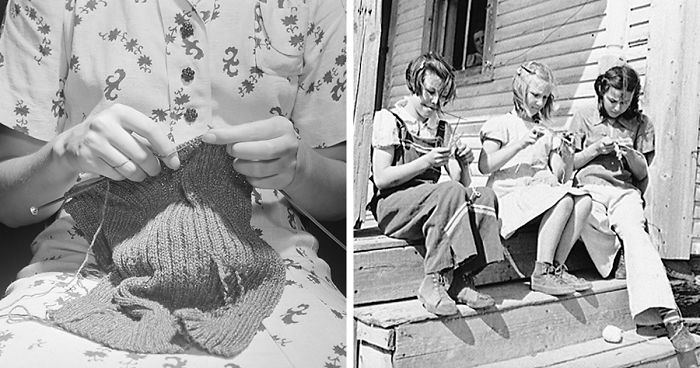
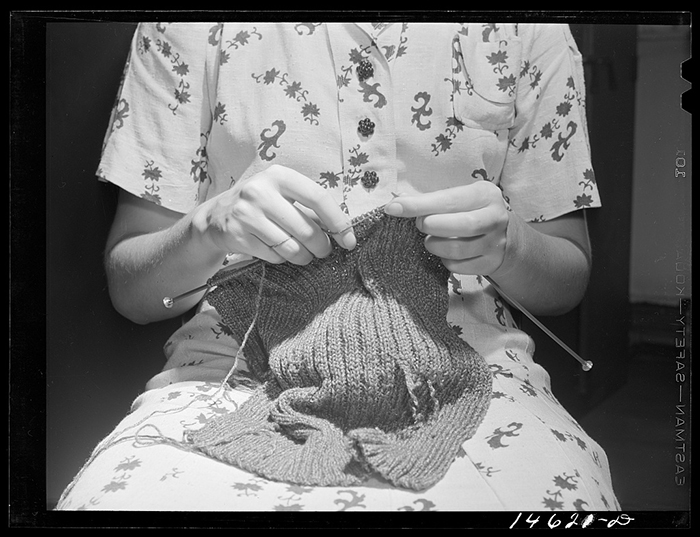
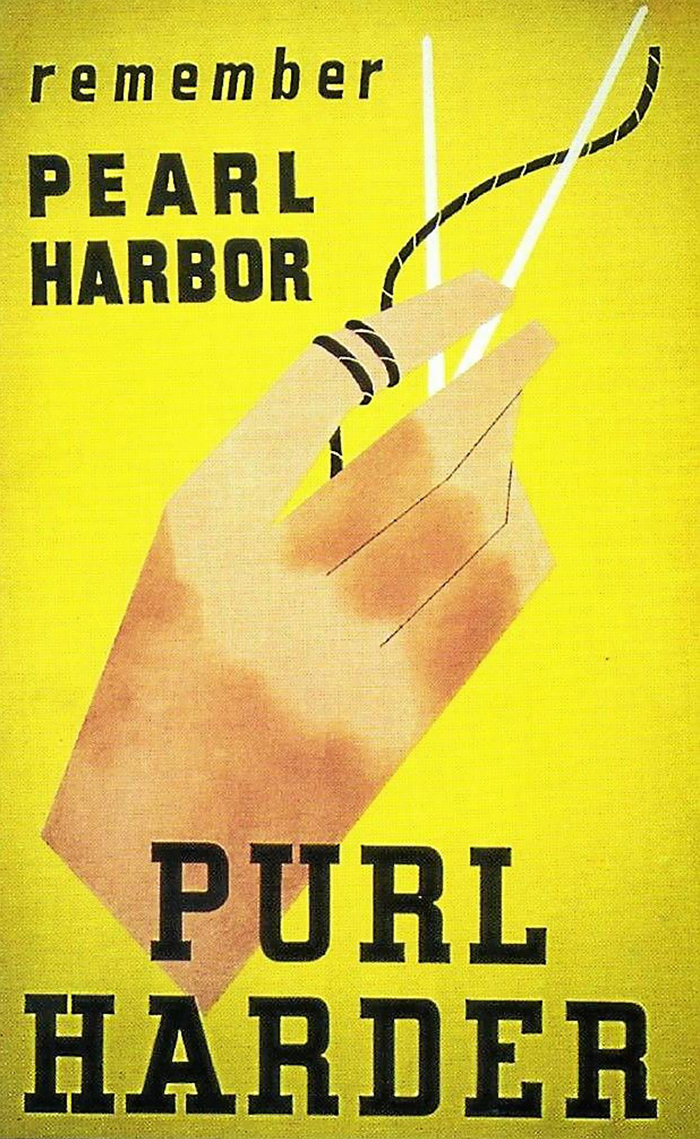
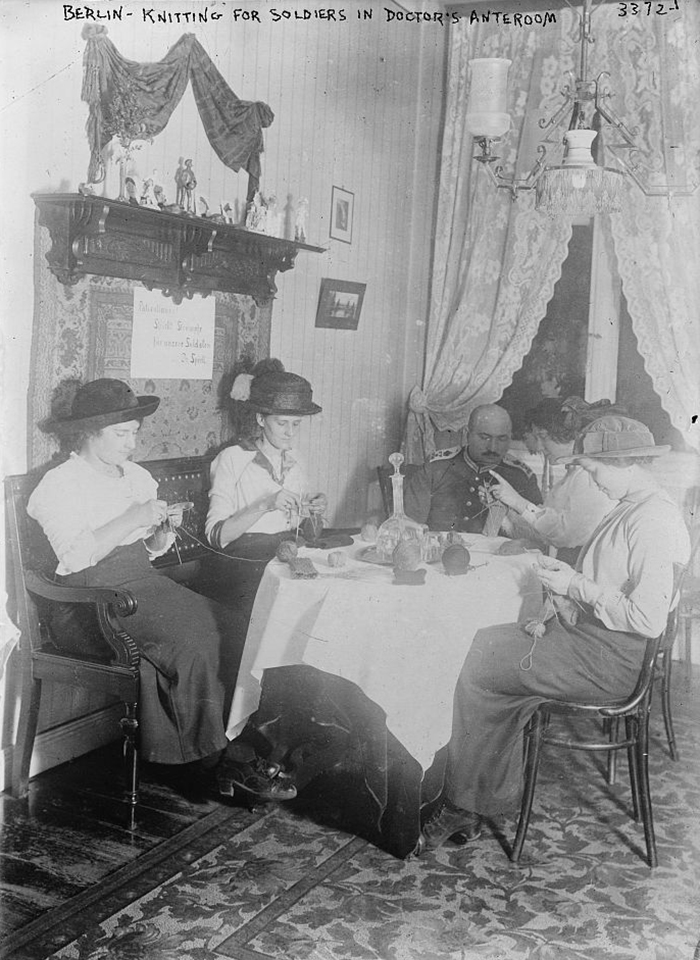
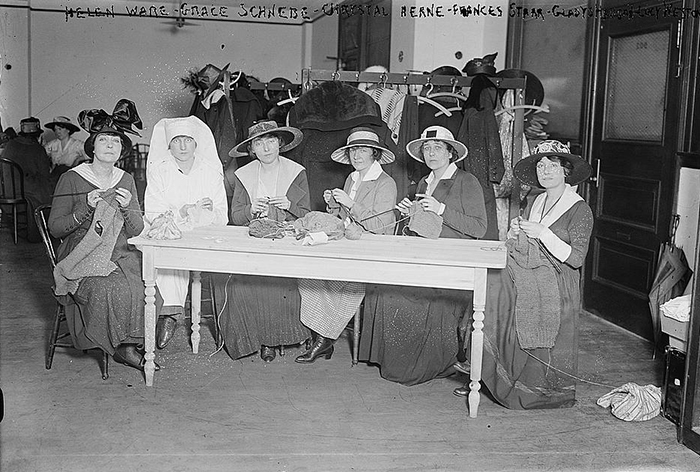
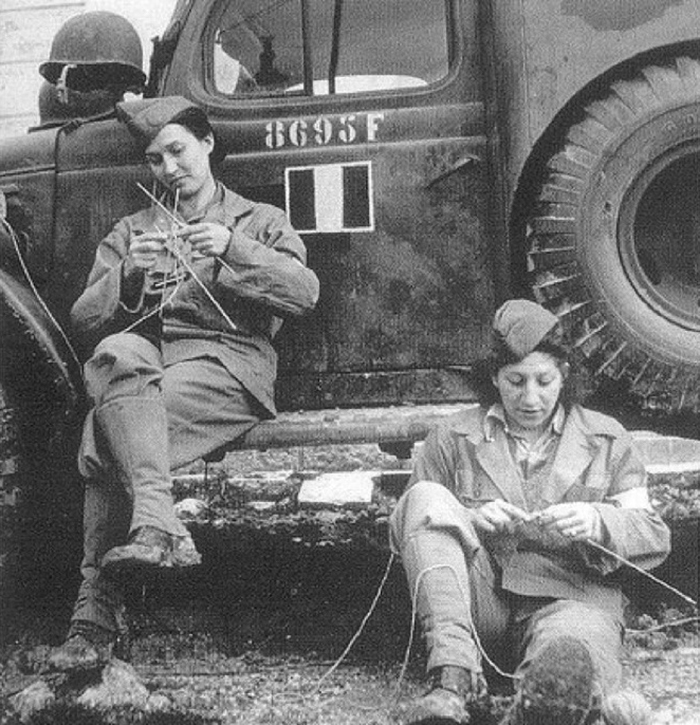
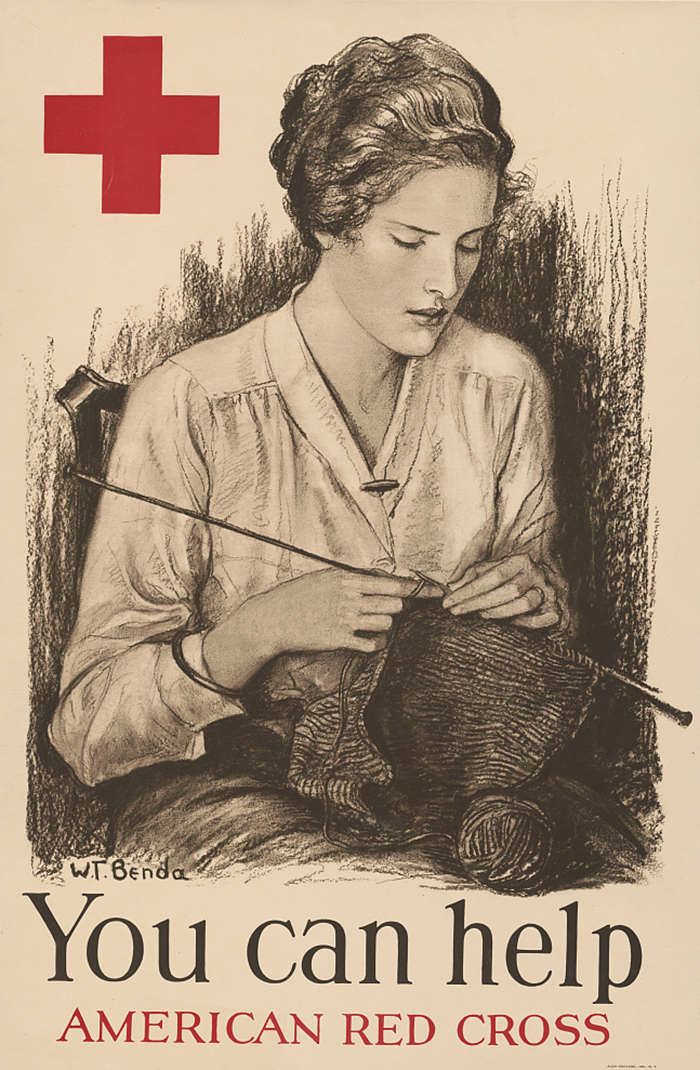
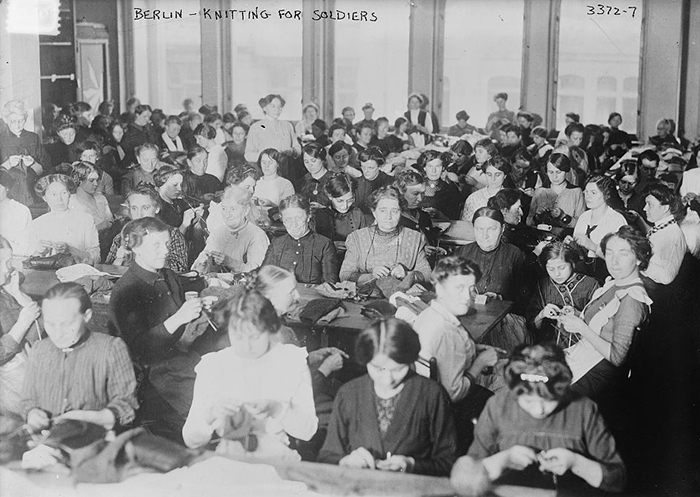
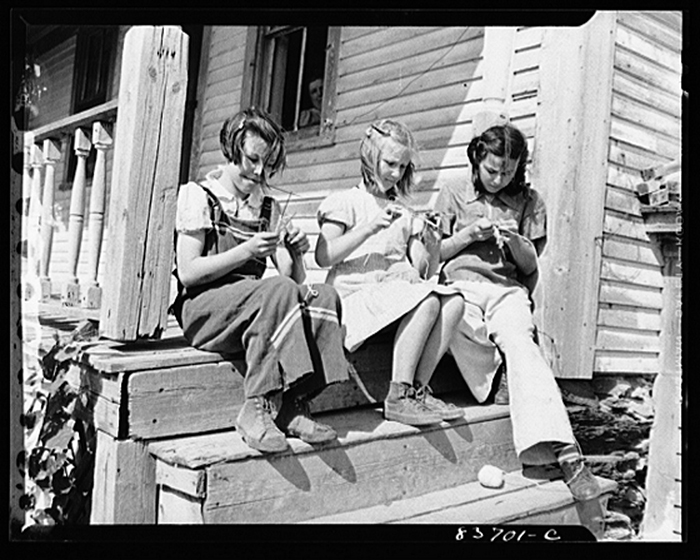
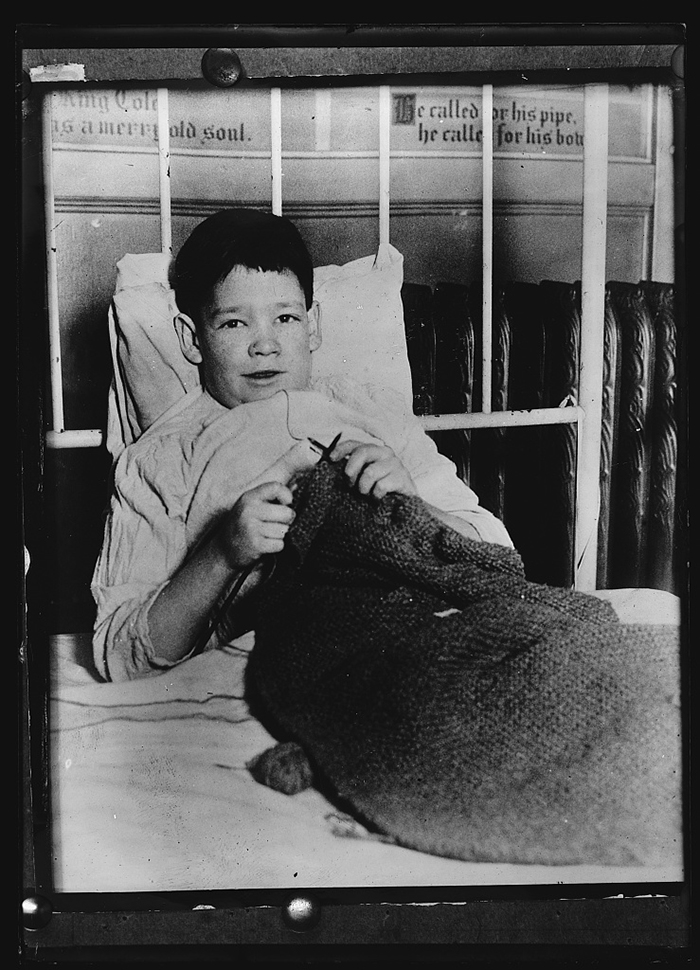













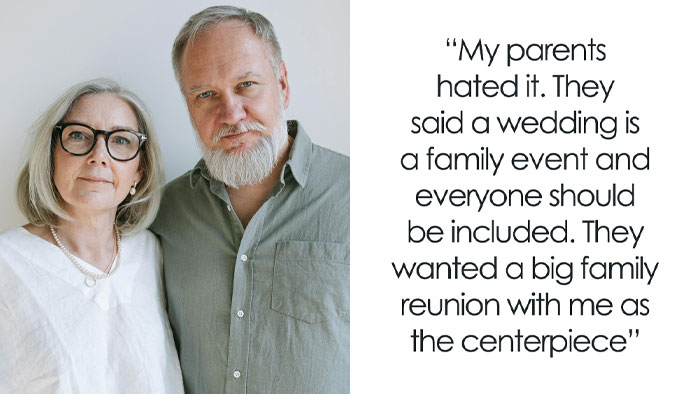






























186
19